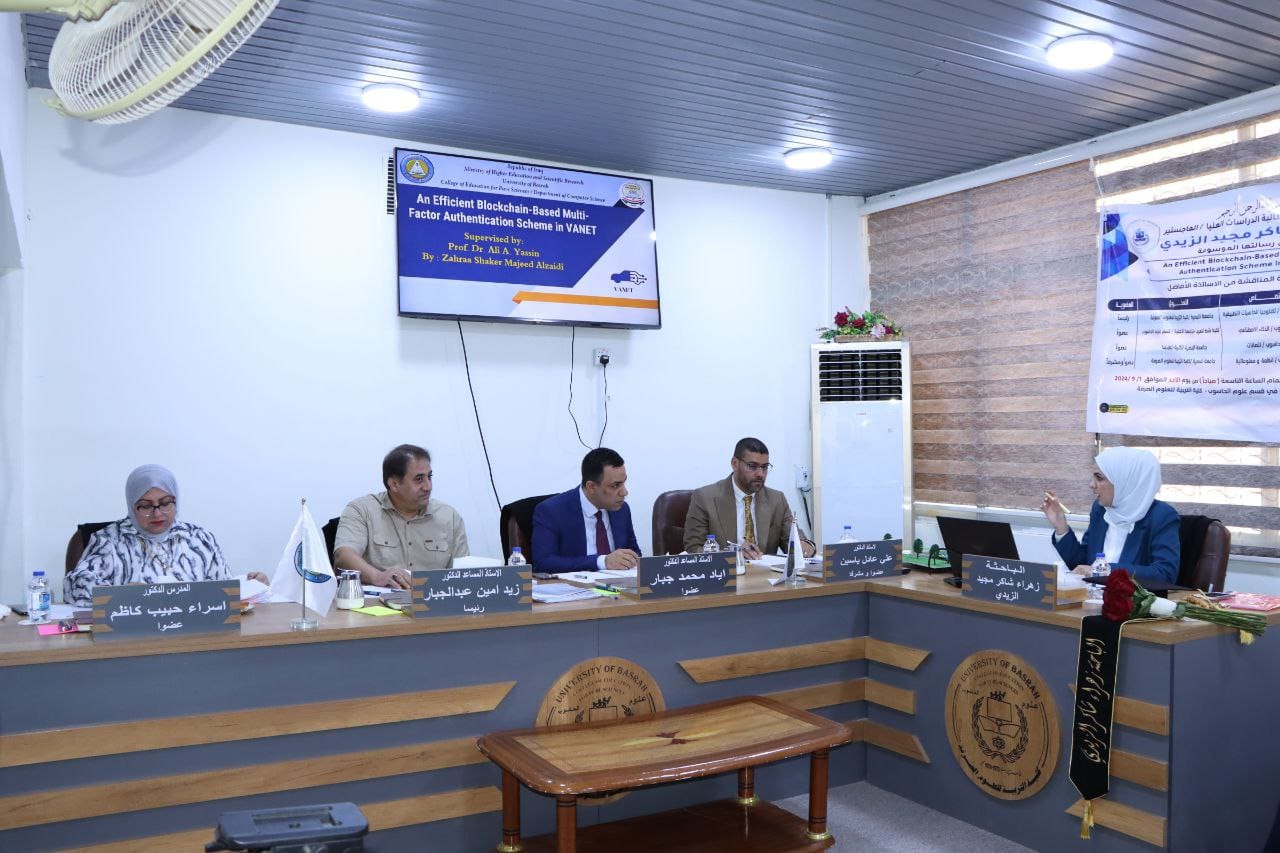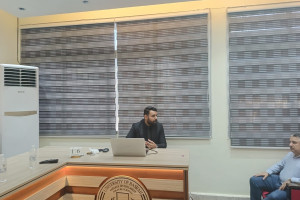
The College of Education for Pure Sciences, Department of Computer Science, discussed a master's thesis on an effective multi-factor authentication system based on blockchain in the dedicated network of vehicles. The thesis presented by the researcher (Zahraa Shaker Majeed) included studying vehicles and users, ensuring the integrity of exchanged messages, and preserving privacy as essential features in the security of the dedicated network of vehicles. The dedicated network of vehicles is used to obtain information about road conditions, the location and speed of vehicles, and describing traffic congestion. Since the information in the dedicated network of vehicles is exchanged openly, it is vulnerable to serious security threats. Most of the previously proposed security solutions for the dedicated network of vehicles have not been able to adequately meet the security and efficiency requirements. In addition, the current systems rely on high communication and computing costs and are not compatible with applications with limited resources in the dedicated network of vehicles. To meet all these requirements, we propose a privacy-preserving security solution that relies on multi-factor authentication (fingerprint and QR code) for the dedicated network of vehicles, based on blockchain technology and fog computing. The system relies on fingerprints and QR codes to authenticate vehicle users, and uses fog computing techniques to reduce the computational burden on road units, improve service quality, and enhance resilience. In addition, blockchain technology is used to synchronize a consistent ledger across all road units to store and distribute vehicle authentication statuses, which enhances the overall efficiency of the authentication process. The system uses a combination of elliptic curve cryptography algorithms, data hashing, symmetric encryption (Advanced Encryption Standard), and fake identities as authentication factors. The proposed system is secure and scalable, and compared with existing systems, it has low computing and communication costs. Through a comprehensive comparison with existing related protocols, the system shows a significant reduction in computing costs and communication burden in high vehicle density situations. The system can authenticate a single user, vehicle controller, and road unit in a time period of 6.3816 milliseconds, making it more accurate. Therefore, experimental evidence indicates that our protocol outperforms other systems in terms of reliability, ease of use, and practicality to ensure secure data transmission within the dedicated vehicle network. In addition, the proposed system shows a successful balance between efficiency and complexity, protecting confidentiality and anonymous authentication, ensuring data integrity and conditional traceability. Formal and informal security analysis proves that our system is more reliable, practical and secure against many adversarial attacks such as modification attacks, 51% attacks, Sybil attacks, and MITM attacks.









